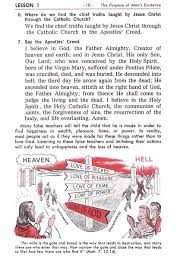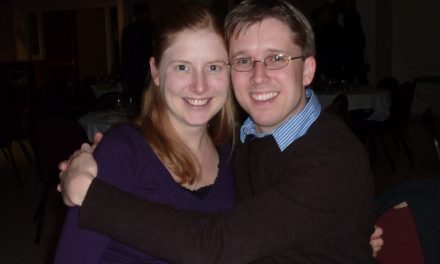This week is the Week of Prayer for Christian Unity, and I wanted to make sure that it did not pass unremarked on this blog.
In his encyclical Ut Unum Sint, Pope John Paul II remarked,
Thus it is absolutely clear that ecumenism, the movement promoting Christian unity, is not just some sort of “appendix” which is added to the Church’s traditional activity. Rather, ecumenism is an organic part of her life and work, and consequently must pervade all that she is and does.
If the work of ecumenism is an organic part of the life and work of the Church, then it follows that ecumenism is an organic and essential part of the life and work of all Christians. Now, not every one of us can (or, probably, should) dedicate our whole lives to this work, but all of us should allow the reality of the brokenness of the Church, and the hope for its unity, to pervade our very identities.
There was a point in my life where I didn’t really care too much about ecumenism. All of my best friends were Catholic (and, I might confess, Catholics of a certain stripe, for the most part). All of my theological conversation partners were in that same camp. My “church,” which in retrospect was very small and very limited, was big enough for me and it was powerfully united. I didn’t know anyone with whom I wanted to be in communion and was not.
But, somehow, I eventually found myself studying at a Protestant divinity school and living in an “intentional Christian community” with a bunch of Protestants. We prayed together, and argued together about the ethics of everything from eating meat to the death penalty to the sleeping arrangements for our overnight guests. Our arguments about communion were legion and legend–everything from transubstantiation to open/closed tables. Sometimes the same conversation would continue for weeks at a time, set down and picked up again as time allowed.
And, in the midst of all that, I realized, in a way that I never had before, that we were and are part of “one, holy, catholic and apostolic Church.” It is the Church that Lumen Gentium refers to as the Church of Christ, and it is broken. One of the greatest gifts I carry with me from those days is all the times I went to Protestant services–usually because a friend was preaching, or their child was being baptized, or some other special occasion–and I did not receive communion. In those moments, I felt deeply the brokenness of the Church. I felt the division even in the midst of what is supposed to be a celebration of our unity and oneness. I call this a gift, though, because it is indeed a gift to feel so united to fellow Christians, across denominational and other divides, to feel the pain of our ecclesial divisions. I had moved from a small and unbroken church to a bigger, more complicated and more divided one, and I knew that the movement was a gift.
I’m back in a largely Catholic world. So much so that I needed the Week of Prayer for Christian Unity to remind me to pray for something that–in that divided community–I used to pray for daily: the unity of the Church. This week, please take a little time to remember and reflect on the brokenness of the Church; try to do a little something to reach across the divides. And take a little time to pray for the unity of the Church.




Thanks for this reminder, Dana. As you know, I’m a “convert” to Catholicism, but (except for my husband and daughters) my entire family, as well as my husband’s family, are not Catholic. This is a division we face often and I do not pray enough about it, I think.
One of the most difficult songs we sing at mass is Haugen’s “All Are Welcome” – I feel rather slapped in the face every time we sing it and would rather not have it at all, even if family members aren’t there with us, because I know – there are many, many who do not feel welcome because neither “side” understands the other when it comes to open and closed communion tables. The song feels like a lie on a number of levels. Catholics, I think, see the lack of communion as a bit like having an arm ripped off and a gaping wound there. I know that my Protestant family and friends would not tend to see it that way – but see various denominations as being somewhat like monastic orders – as in, Methodists have a particular charism, and so do Lutherans, and they may have their disagreements but it’s not any more serious than, say, the famous disagreements between Dominicans and Franciscans.
Once, none of us would have welcomed the other at our churches; now many Protestants would say they have progressed beyond that to a better way. And I want to be humble enough to think that perhaps they are speaking truth – and perhaps my parents’ church is far more hospitable than my parish.
And yet I also wonder: what about the gaping wound that we all ignore?
In other words, we don’t even understand ecumenism in the same way, and our various theological views do indeed lead to sometimes vastly different world views about beginning of life and end of life issues, to say the least. It’s easy to despair. Prayer is good.
Jana, your comment about how we understand ecumenism (and, relatedly, ecclesiology) reminds me of something I once heard (the Methodist theologian) Geoffrey Wainwright say. He was lecturing a room full of (mostly Protestant) divinity students in the intro theology course, and somehow a student raised her hand and basically said, “I don’t understand why the Catholics don’t just get over it and play nice so we can all get along.” It was the meanest/maddest I’ve ever seen Wainwright. He talked about how important the claim is theologically, credally, about the oneness of the Church. Then he basically mocked Protestant ecclesiology’s attempt to claim a “unity” in the midst of their differences and divisions as being analogous to claiming that all the stores in a mall were “one” because they were all in the same mall. He basically told them that he knew that this was the kind of thinking that they were used to, but that they needed to understand that the Catholic Church’s insistence on some deeper sense of unity before “playing nice” was a great gift to the whole Church, and they would be wise to take it seriously as they thought about the oneness of the Church.
I think the story illustrates your point: we have to learn something about why the other side holds what it holds and does what it does in order to really understand the nature of the wound and to have a hope of healing it. I can’t tell you how many times I was at some sort of Protestant service and someone came over to reassure me that it was okay, I was welcome at the table, please receive. But I became more and more convinced that it was important for me not to, because that gives an easy, comfortable semblance of a unity that is not there.
And so we pray that God might give the Church the unity that we are called to.